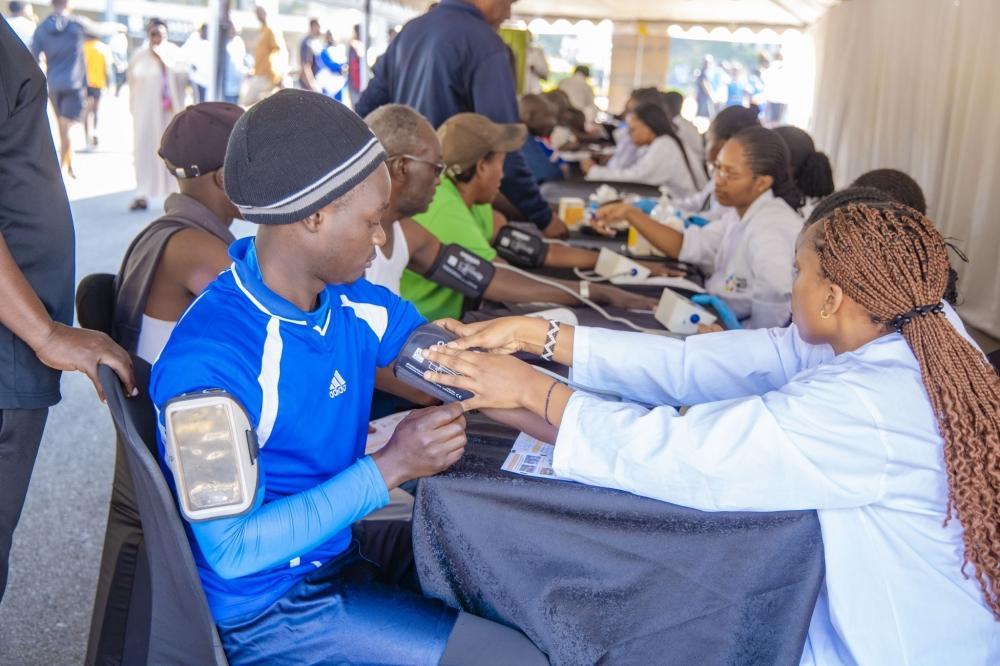Africa-Press – Rwanda. Young people in Rwanda have been questioned on their low turn-up for non-communicable disease (NCD) screening activities, even though some of them are at risk due to unhealthy habits like drinking and smoking.
NCDs include heart diseases, cancers, diabetes, chronic kidney disease, strokes, and others. These diseases are often caused by factors such as obesity, high alcohol consumption, smoking, stress, lack of physical exercise, and sedentary lifestyles.
According to the Rwanda Non-Communicable Diseases Risk Factors Study 2021-2022, the prevalence of NCDs is 2.5 percent among individuals aged 18-44, six percent among those aged 45-60, and seven percent among people aged 61 and above.
Simon Pierre Niyonsenga, Programme Director for Non-Communicable Diseases, Diabetes, Renal, Respiratory and Other Metabolic Diseases at the Rwanda Biomedical Centre (RBC), blamed young people’s reluctance to get screened on poor perceptions about NCDs.
“Diseases don’t choose people by age; anyone can get sick,” Niyonsenga said, adding that many young people are at risk of NCDs because of lifestyle choices.
“Many youths drink excessive alcohol, smoke and avoid physical activity which older people actually tend to do more consistently. Obesity is also increasing among the youth due to consumption of sugary and unhealthy foods, which significantly raises the risk of NCDs,” he noted.
NCDs account for about 44 per cent of all deaths in Rwanda and officials say most of these diseases can be prevented if people make wise lifestyle choices.
The RBC officials urged young people to take part in available NCDs testing programmes since the government has made it easier for everyone to access them.
“Most of these services are free. For example, we offer free testing during Car-Free Day events, in schools, concert halls and at stadiums,” he said. “Even at health centres, you can get tested. While some tests might cost money, basic screening is provided free of charge.”
Niyonsenga also advised the youth to reduce consumption of alcohol and tobacco, and do more physical exercise to prevent obesity and reduce the risk of NCDs.
Some of the youth who spoke to The New Times acknowledged the need to get screened for NCDs but said that the perception that NCDs affect only elderly people was still a factor in their reluctance to take regular tests.
“We need to make time to get tested for non-communicable diseases,” said Desange Akimana from Kigali. “Unfortunately, many of us don’t understand how important that is.”
Valens Muvunanyiko, another youth from Kigali, noted that there is a general tendency for people not to seek medical tests if they are not feeling sick.
Bardine Iratuzi pointed out that the cost of such tests in some health facilities is another barrier. “I think getting a health check-up is expensive and that discourages us,” she noted.
For More News And Analysis About Rwanda Follow Africa-Press






